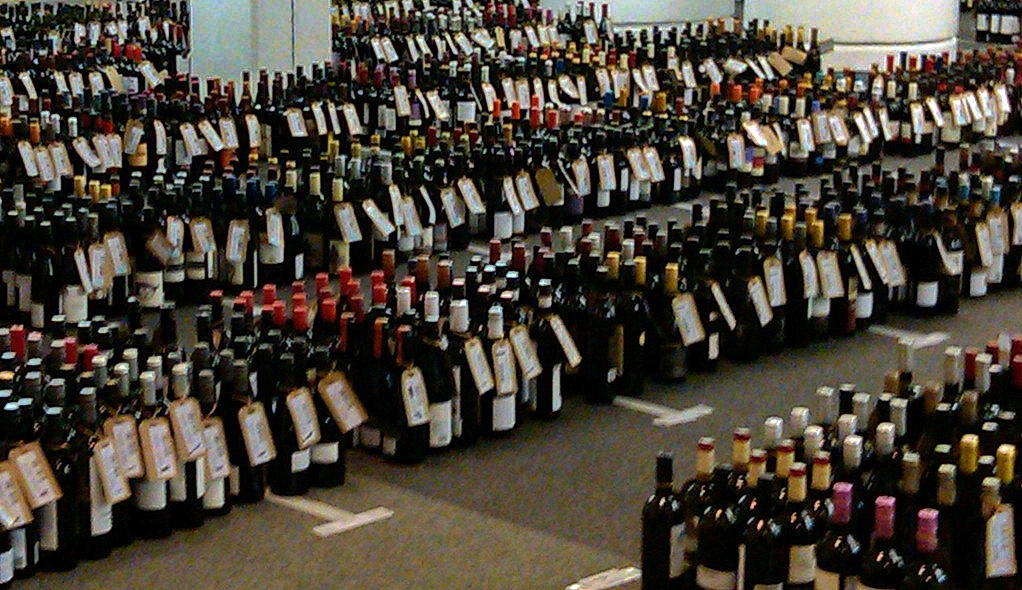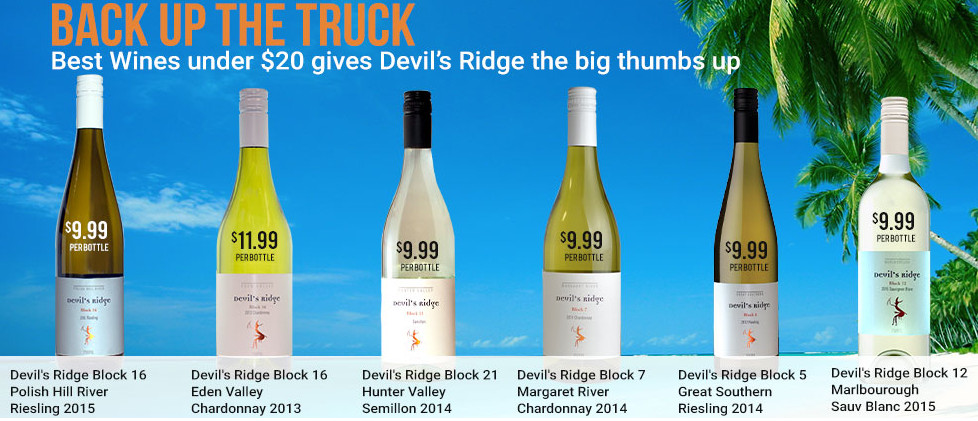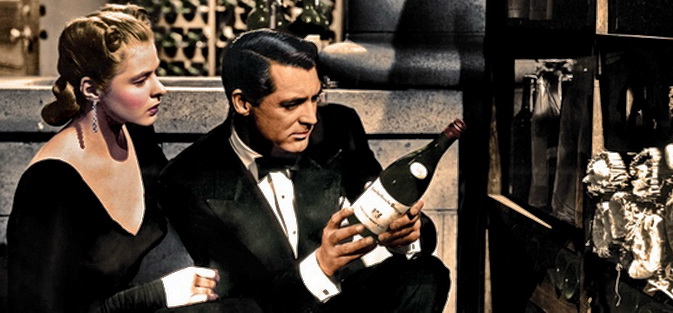Wine companies are getting mean with samples, so my friends in the industry tell me. Yes, I understand why wine companies would feel that way. They used to send samples to a handful of reviewers and wine magazines and, now that the internet has spawned dozens of wine bloggers, the list has grown and so has the cost of distribution. We can’t blame them for closing the gate on some reviewers.
 For Best Wines Under $20, samples have been a problem from the word go. Many wine companies don’t want you to know where to buy their wines at bargain prices. Others don’t fancy any association with a site that is focused on the value end of the market. When I ask wine companies for samples, I often get this response: we don’t make wines under $20. I give them half a dozen links to their $25 or $30 wines selling for $15 to $20, and half the time that’s the end of the conversation.
For Best Wines Under $20, samples have been a problem from the word go. Many wine companies don’t want you to know where to buy their wines at bargain prices. Others don’t fancy any association with a site that is focused on the value end of the market. When I ask wine companies for samples, I often get this response: we don’t make wines under $20. I give them half a dozen links to their $25 or $30 wines selling for $15 to $20, and half the time that’s the end of the conversation.
It’s a tough world out there
I kid you not: they sulk as if it were my fault that you can buy their wines at a discount. Or they come back and say: we’ll send you some samples next time we release wines. Half the time that never happens. Others ignore what I tell them about our focus on real prices not RRP and send us their bottom of the barrel stuff, wines I can’t even share with my neighbours.
Hey, I know making and selling wine is a tough business. You have my sympathy, my understanding and my support. There’s nothing else I can offer you apart from a rave review when your wine deserves it, and a bunch of loyal subscribers. All I ask is that you tell me what you’re going to do instead of giving me the run-around or the silent treatment. Tell me to piss off or send me some samples, it’s that simple.
It’s an even tougher world for some
‘The conventional wine writer’s article about his, or in Britain often her, work is to bemoan our lot,’ Jancis Robinson wrote a decade ago in a post headed The luck of the wine writer. ‘Gosh, we have to get up quite early you know, and occasionally taste tough young wines in cold cellars before nine o’clock in the morning. And, would you believe it, we often have to unpack large cartons full of free bottles of wine? You would hardly believe how tiresome all those couriers and polystyrene can be, my dear.’
Then she adds: ‘I have written this sort of stuff in my time but I am increasingly aware that this is just a smokescreen.’ Then she reveals that wine writers feel guilty about the privileged life they lead and put up this smoke screen to mitigate that guilt. A second reason she gives, tongue in cheek I assume, is making would-be young wine writers think again. ‘Already the correspondence columns of the wine trade journals carry impassioned pleas from younger wine writers about how difficult it is to dislodge us old timers from our cosy niches in the national press.’
It’s extra tough on Readers
Getting more serious, Jancis concedes that the job has many upsides such as free travel to exotic destinations, meals at some the top restaurants in Europe and of course lots of great wine for free. And since wine reviews are just opinion pieces, there’s little chance of the authors getting entangled in nasty law suits. In other words, you can say what you like without fearing the consequences.
Then comes a strange admission: ‘I know that it is extremely frustrating for readers not to be able to find recommended wines, but if the business of making recommendations becomes the result of tight- knit cooperation between writer and retailer, it becomes much more difficult to maintain the necessary distance from, and independence of, what we write about.’
It’s Hard to keep a Straight Face
What a lot of crap, and what an obtuse argument. Tight-knit cooperation between writer and retailer? Every week I check online to find merchants that sell the wines I recommend, which is hard work but of real value to my subscribers. That said, other reviewers are too lazy to do this and, when I pull them up, I get bullshit answers along the lines of: ‘We can only review the samples they send us, it’s not our job to work out when the wine hits the shelves.’
Some retailers supply samples for me to review. Dan Murphy’s do that with their direct imports and cleanskins, and Kemenys do it with their Hidden Labels, Secret Labels and cleanskins. The reason in both cases is simple: other reviewers don’t review these wines. Winedirect and MyCellars also send me samples of wines they think fit into our sweet spot.
Kemenys recently sent out a mailer with a bunch of my reviews, and described me as ‘a very tough marker who never holds back in giving his honest, critical (and often brutal) assessment.’ The others have been on the receiving end of my brutal reviews as well, and they’re still talking to me. They know my style and how I operate, and they respect what I do. There’s no conflict here. The image below is from Kemenys’ home page. They didn’t ask me and they didn’t pay me. Anybody is welcome to publish my reviews and scores.
It’s even tougher on wine writers
Next we come to the power and the glory of big time wine critics like Robert Parker whose sway is such that Bordeaux chateau owners wait for his ratings of their yet to be bottled wines before deciding on the price. Jancis says this ‘must be must be a heavy weight to bear.’ She could be right there, because Parker had major back surgery a couple of years ago and says he now has a ‘completely rebuilt lumbar spine,’ which took ‘lots of metal and rehab.’
Then comes the even tougher job, which is that ‘we wine writers are awash with wine … and not necessarily wine that we fusspots actually want to drink.’ That is tough, I must concede. Jancis adds that wine writers share the surplus with friends and neighbours but says she worries ‘about the effect of handing over dozens of open, almost- full bottles at a time to one eager individual. Does she only have one neighbour who drinks wine? He must be awash alright. Drowning, more likely.
Guess Who’s Coming to Dinner?
There’s one more downside to being a famous wine writer, Jancis concedes: ‘I am often asked, particularly since I am married to someone who is both a restaurant critic and a very good cook, “aren’t people scared to invite you to dinner?” Perhaps. I do not know, since no- one ever calls to say they would have invited us round but decided against it on the grounds of imagined gastronomic inferiority.’
‘What I do know is that, to my delight, those who do invite us to eat tend to open their best bottles for us. If they have been saving a bottle of Penfolds Grange or Dom Perignon for an occasion that warrants it, they delightfully often seem to abandon the idea of the suitable occasion in favour of a suitable person, me. I suppose they think that at least I will fully appreciate that special wine. And they are absolutely right. I can hardly believe my good fortune. Now, back to the coalface of corks to be pulled.’
Am I envious? Of course I am. I’m the $20 wine guy, people don’t ask me to review 1st growth Bordeaux, Grand Cru Burgundies or Grange. I’m lucky to have friends who share wines like these with me. The reason I’m writing this piece is a simple one: Robinson’s post shows how top gun wine writers end up living in a bubble that’s floating somewhere far removed from reality, so much so they don’t even recognize the self-centred nonsense they write. Is that what Jancis means by the need to ‘maintain the necessary distance from, and independence of, what we write about?’
I don’t mind getting my hands and knees dirty crawling through the retail trenches.
Looks like the bottle in Cary Grant’s hands is not from a great year.
Kim


